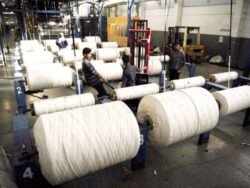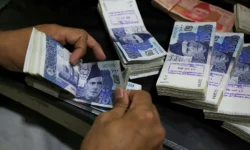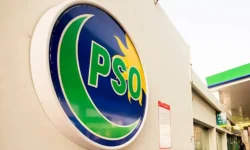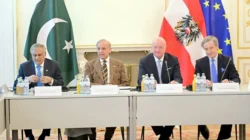PAKISTAN’S BATTLE AGAINST SMUGGLING AND HOARDING FORECONOMIC PROSPERITY

Aiman Khattak
Pakistan is grappling with the scourge of smuggling and hoarding, which have eroded the country’s economic and social fabric. These nefarious activities involve the covert trade of goods through diverse routes, such as land crossings with Iran and Afghanistan, and sea lanes along the Arabian Sea. Smugglers resort to clever tactics methods, using animals, such as camels and horses, as well as human smugglers, to transport illegal goods across borders. The repercussions of smuggling are far-reaching, breeding criminal activities. crippling local industries, enabling tax evasion, and eventually damaging economy.
A joint study by economists from Harvard University and the Ministry of Commerce in 2020 revealed that smuggled goods have penetrated various sectors of the Pakistani economy, causing a colossal loss of $3.3 billion. The report exposed startling figures, with 74% of cell phones, 53% of diesel, 43% of engine oil, 40% of tires, and 16% of auto parts sold in Pakistan being contraband. In spite of the magnitude of the issue, law enforcement and regulatory agencies can only confiscate a paltry 5% of the smuggled goods entering the country.
Furthermore, Currency smuggling aggravates the economic harm inflicted by smuggling. Pakistan suffers an annual loss of $2 billion due to dollar smuggling, with a projected monthly loss of $150 million. The former finance minister suggested that the rise of the US dollar may be linked to the substantial amount of dollars being smuggled. This exodus of physical dollars indicates a chance for arbitrage, adversely affecting the country’s economy.
Notably, such policies affect the disparity between open market and interbank rates, which incentivizes low-income households and vendors to opt for smuggled goods in a context of stagnant incomes and soaring prices. This inclination towards more affordable smuggled goods over taxed goods that are either legally imported or locally produced is evident in various upscale markets.
Moreover, smuggled Iranian oil accounts for over 30% of Pakistan’s diesel demand, with approximately 10 million liters of diesel and two million liters of petrol smuggled into the country daily. The use of smuggled diesel results in a monthly loss of Rs.10.2 billion, causing several local refineries to operate below capacity. Similarly, the gold market suffers from significant underreporting, with only 1.32% of the market value declared to tax authorities. This is due to an annual smuggling of around 80 tonnes of gold into the country, representing half of the annual consumption. Proper regulation of the gold market could contribute a minimum of $500 million annually to government revenues.
Recognizing the severe consequences of smuggling and hoarding on the economy of Pakistan, the Apex Committee of the Special Investment Facilitation Council (SIFC), under the supervision of COAS Gen Syed Asim Munir, has taken decisive action to combat these illicit activities. The SIFC Apex Committee has initiated various projects and initiatives to curb smuggling, hoarding, and market manipulation, aiming to provide immediate relief to the common citizens of Pakistan. The COAS General Asim Munir and caretaker government’s commitment to tackling these challenges proved to be crucial for maintaining a stable and prosperous economy.
In a significant move, the government has taken a major step by introducing 10% processing fees on imports from Afghanistan and implementing ban on import of certain items to curb smuggling. Moreover, Pakistan initiated a countrywide operation led by the Pak Army against currency smugglers, hoarders, and black marketers, with the goal of averting an economic crisis that had severely eroded the national currency and drained the country’s reserves. The rigorous actions taken during the operation have resulted in a noticeable enhancement in the value of the Pakistani rupee, bringing much-required stability to the economy.
Moreover, COAS General Syed Asim Munir has expressed the military’s complete backing, in collaboration with law enforcement agencies and other government departments, in implementing measures against a range of unlawful activities. The extensive initiatives to fight smuggling and hoarding, along with the encouragement of foreign investment, demonstrate a firm dedication of our Military leadership towards economic growth and stability of Pakistan.
To sum up, smuggling and hoarding have inflicted significant damage on Pakistan’s economy, undermining local industries, promoting tax evasion, and fostering criminal activities. The losses incurred through the smuggling of goods and currency, as well as underreporting in the gold market, have exacerbated the economic challenges faced by the country. However, through the dedicated efforts of COAS General Asim Munir and the initiatives of the SIFC, Pakistan has made commendable progress in controlling these illicit activities, aiming to provide relief to its citizens and foster economic growth. The ongoing commitment to effective regulation and collaboration is essential for maintaining a stable and prosperous economy for Pakistan, ensuring fair trade, and creating an environment conducive to sustainable development.





